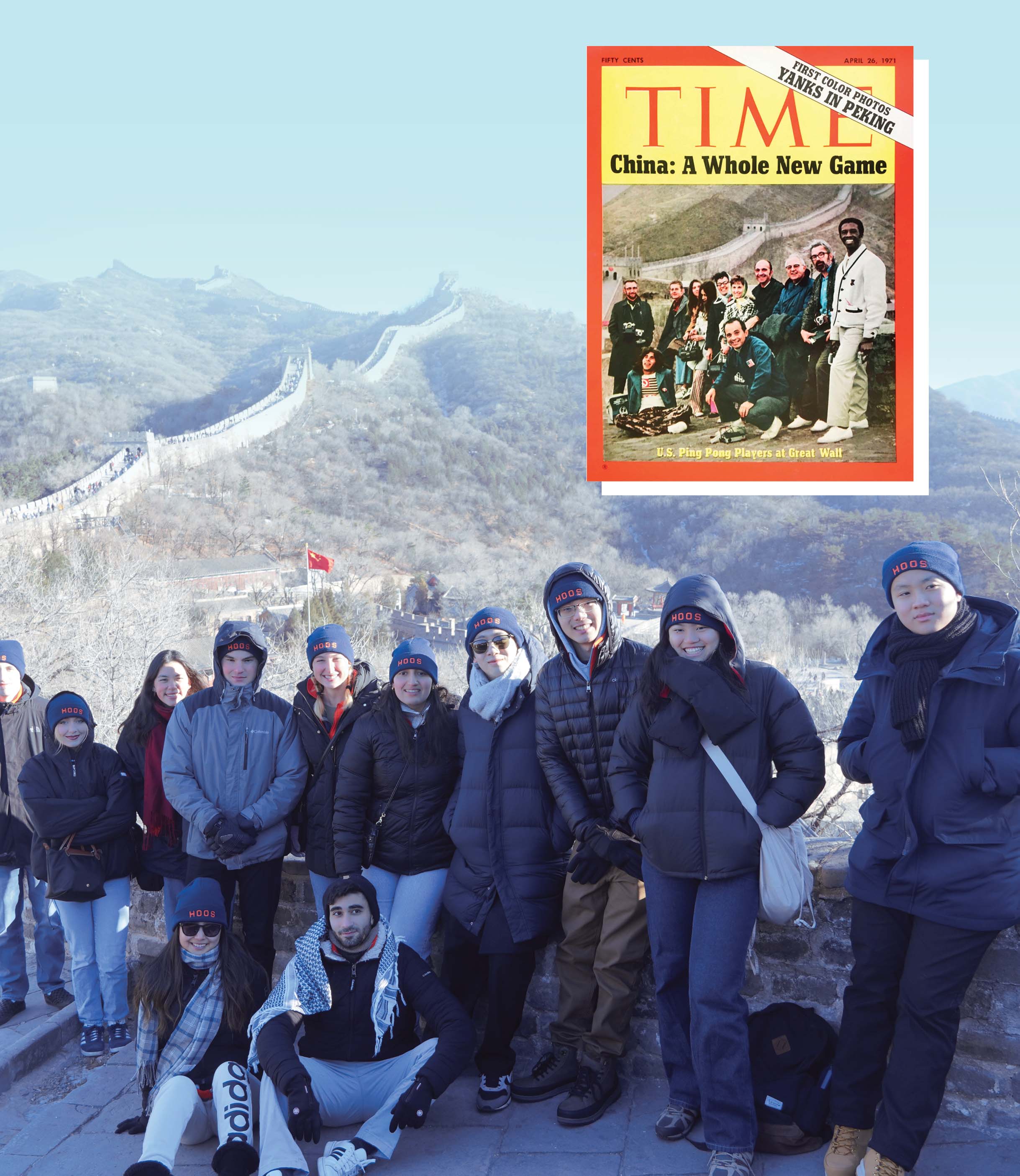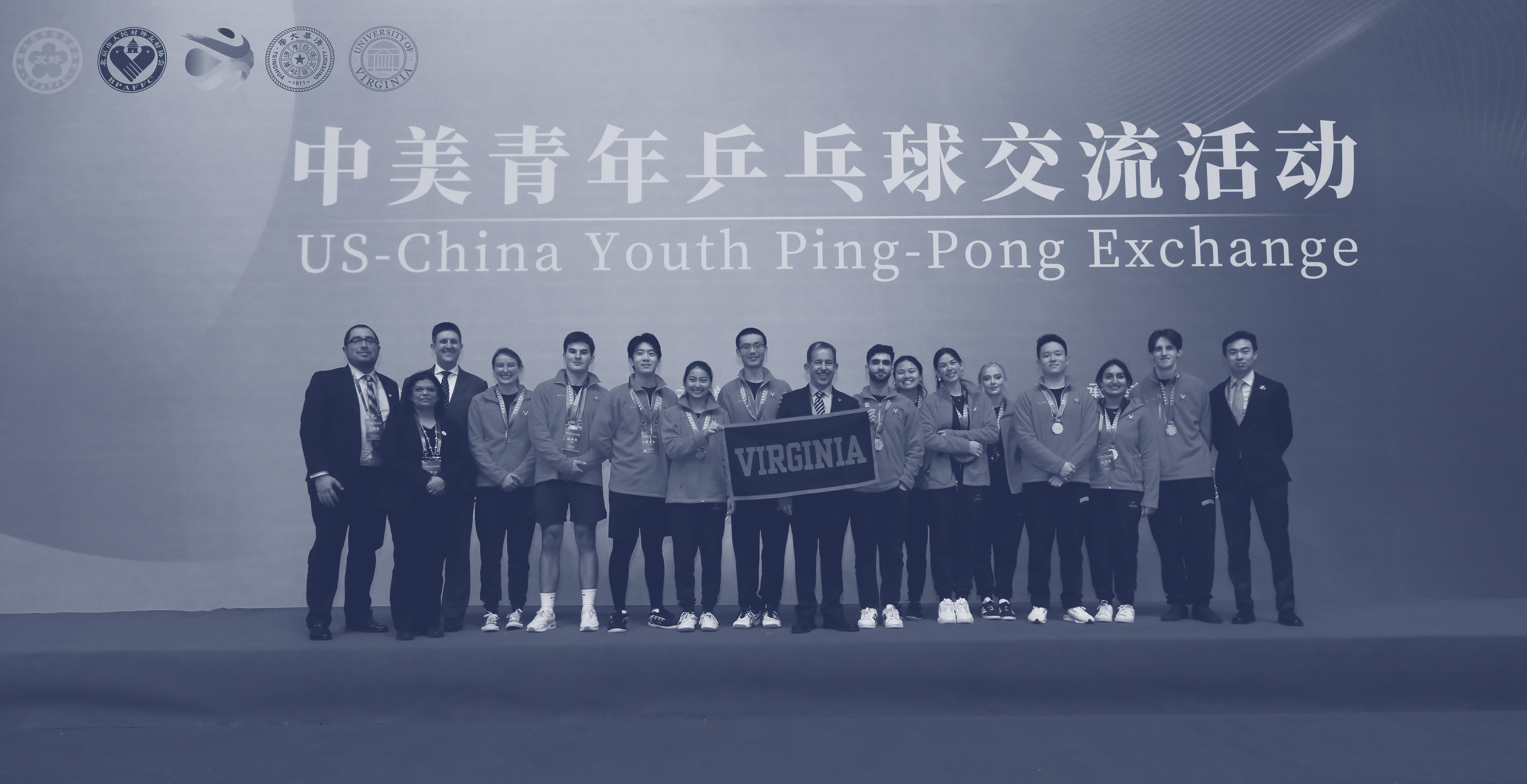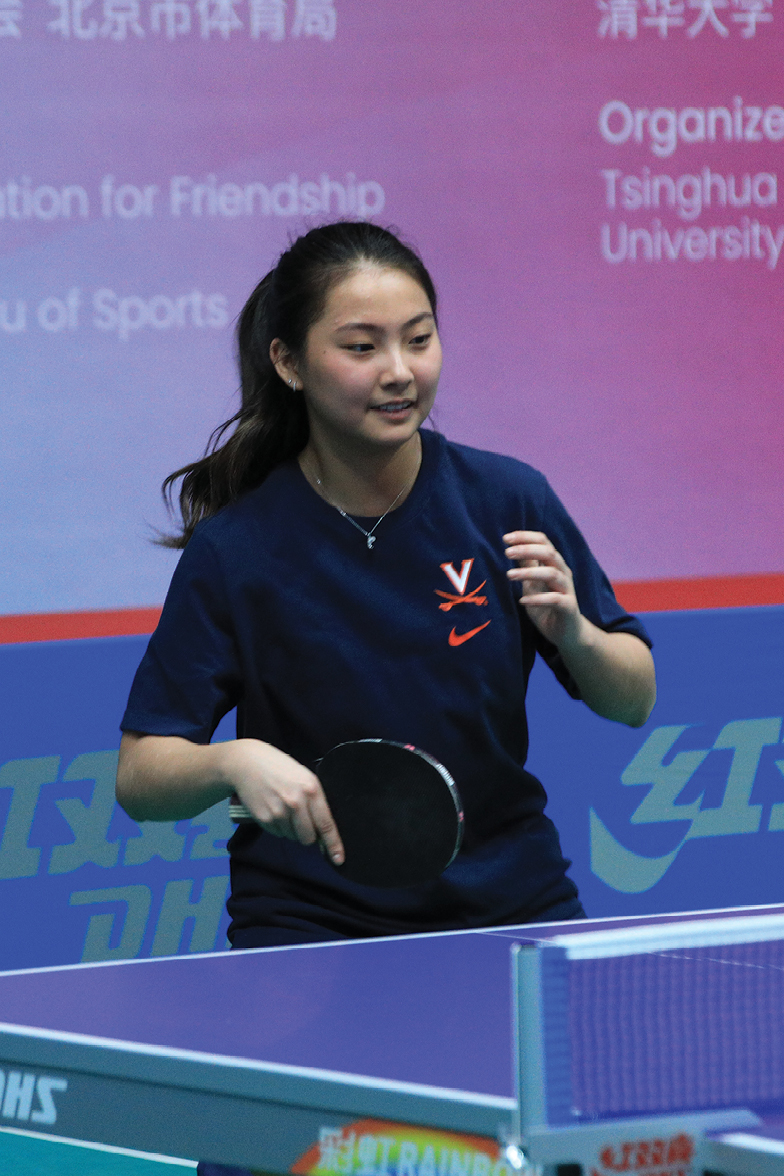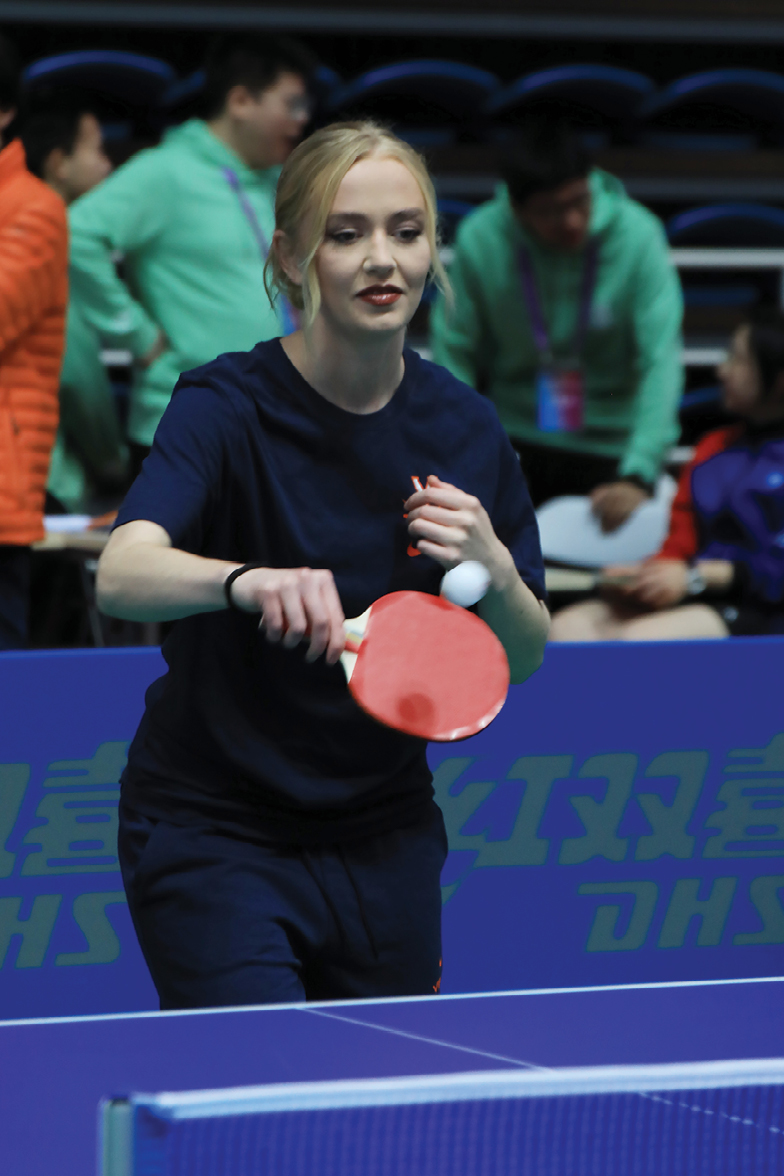Tabletop Diplomacy

Fifty-three years ago, in April 1971, a chance encounter between a Chinese and an American table tennis player became an international sensation. During the 31st World Table Tennis Championships in Japan, an American named Glenn Cowan missed his team’s shuttle bus after a practice session. He decided to catch another shuttle for a ride back to his hotel. It turned out to be the bus carting the Chinese national team.
At the time, there were no diplomatic channels of communication between Washington and Beijing and no formal economic relations between the U.S. and China. International tensions were of little concern to the two young players, so Cowan and Chinese champion Zhuang Zedong struck up a friendly conversation and exchanged gifts. When the bus parked at the arena, photographers caught the moment, journalists smelled a good human interest story, and ping pong diplomacy was born.
The idea of this improbable meeting and the fundamental good will between two athletes captured the world’s imagination. China invited the U.S. team for an exhibition tour of the country. The media sensation that followed eventually led to President Richard Nixon’s historic visit to China, the lifting of travel bans, and the establishment of full diplomatic relations.

American table tennis player Glenn Cowan, right, and three-time world champion Zhuang Zedong of China after meeting on a bus ride in Japan, 1971.
In January 2024, 12 UVA students boarded a flight to China as part of a J-Term course called “Game Change: Bridging the U.S.-China Divide Through Sport.” The 12-day trip followed in the footsteps of the 1971 team, giving “our students their own shot at Ping-Pong diplomacy and developing a better understanding of current issues between the United States and China,” said Vice Provost for Global Affairs Stephen Mull.

In a nod to history, the students re-created the U.S. team image featured on the cover of TIME magazine from 1971.
Mull—who served in a broad range of U.S. national security positions, most recently as acting undersecretary for political affairs at the U.S. Department of State—went along to teach the course with Justin O’Jack, director of the UVA China Office. The tour included several destinations visited by the 1971 team, lectures, visits to cultural sites, and friendly exhibition matches with Chinese university students. The UVA students also met alumni and parents from China in events hosted by UVA clubs there.
“China is a very important country for UVA’s global engagement,” said Mull. “The biggest share of our international students, about 40%, come from China. I think it’s important that we, as educators, do the very best job that we can to teach our students about China—to have them become familiar with the Chinese language, politics, culture, and history. It’s the second-largest economy of the world in a major competition with the United States.”
During the trip, which began in Hong Kong and ended in Shanghai, the UVA students made their own version of history—they were the first UVA education abroad group to visit China since the pandemic. Mull helped develop a course and itinerary that made good use of the students’ time.
“We had a lecture on ping pong diplomacy and how that all came about,” he said. “We had a discussion among Chinese students who’ve studied in the United States and Americans who’ve studied in China. We did a session on the roles of Buddhism and Confucianism on Chinese thought and how they shape China’s view of the world. We did a seminar on the big foreign policy problems between the United States and China and how might they be resolved.” Cultural activities included a visit to the Forbidden City in Beijing, a trek to the Great Wall, and a foray to a section of Shanghai that had once been colonized by Europeans.
“But most of all, we played ping pong,” Mull said.

I think it’s important that we, as educators, do the very best job that we can to teach our students about China—to have them become familiar with the Chinese language, politics, culture, and history. It’s the second-largest economy of the world in a major competition with the United States.
— Stephen Mull

Jie Lu playing table tennis in China.
People to People, Paddle to Paddle
Jie Lu (McIntire ’24) certainly came to play. Lu, who was born in China but raised in the U.S., has been playing table tennis since she was 8. She was the president of Club Table Tennis at UVA.
“I go back to China every two or three years, but because of COVID, I hadn't been back since high school,” she said. “I know how to speak Mandarin, but a lot of the people on the trip didn’t, so I was really nervous that they weren’t able to communicate with the players or just people in general. However, it was amazing that all the students and players were very welcoming. Everyone was mingling and learning about each other’s cultures. There wasn’t a cultural shock where it's like, ‘Oh my gosh, we’re so different from each other,’ you know?”

Misa Layne playing table tennis in China.
Misa Layne (Col ’26) echoed Lu’s observations. In a blog maintained by the J-Term participants, she wrote:
"People-to-people exchanges serve as the bedrock for higher levels of diplomacy. While not a panacea for international conflicts, such exchanges represent the vital first step toward fostering common understanding. And friendship is enhanced through understanding.
What is significant about ping pong itself is its ability to bring people together. Unlike many other sports, ping pong lends itself to conversation because of the proximity and dynamic of players. It is a game anyone can enjoy. Sports diplomacy has the unique ability to mollify relations, occasionally surpassing the ability of traditional diplomatic channels."
Opening up the Education Abroad Experience
One component of the University’s 2030 Strategic Plan is to ensure that all UVA students have the opportunity to embark on an international experience before graduating. During the planning process, Mull sought funding to enable the 12 students—some of whom were visiting a foreign country for the first time—to travel without worry about the cost. He received support from the Van S. Lung Fund, the UVA Parents Committee, gifts from alumni and parents, and tapped into a special fund that was created to honor UVA’s first international student.
W. W. Yen was the first student from China to earn a degree from UVA and the first international student to earn a bachelor’s degree from the University. Arriving on Grounds in 1897, he excelled in disciplines spanning the arts, sciences, humanities, and law. Yen graduated in 1900 and went on to a long diplomatic and political career that included serving as the Premier of the Republic of China, China’s first ambassador to the Soviet Union, and a delegate to the League of Nations.
In 2016, to honor Yen’s achievements, the University established the Yen Global Initiatives Student Projects Fund to support activities related to student project work for global initiatives.

W. W. Yen in 1932 during the World Disarmament Conference.
For Mull, diplomacy, like table tennis, is all about setting up a lively back and forth. He came away from the trip impressed with the way the students handled themselves in a sometimes-challenging environment.
“I watched the students evolve,” he said. “They were a little nervous, frankly, because of the political climate, and they were asked some sensitive questions. You had reporters sticking microphones in their faces as we were on our different tours and ping pong matches. They developed, very quickly, the political sophistication to not say anything to insult the host without compromising America’s commitment to freedom of speech and democracy. All of them said they can’t wait to go back to China.”
Lu said the trip was a great way to meet and interact with the Chinese people. “We wanted to understand what they do and learn how the U. S.-China relationship is going right now,” she said. “It was very positive. It was hopeful. It was a once-in-a-lifetime opportunity.”

